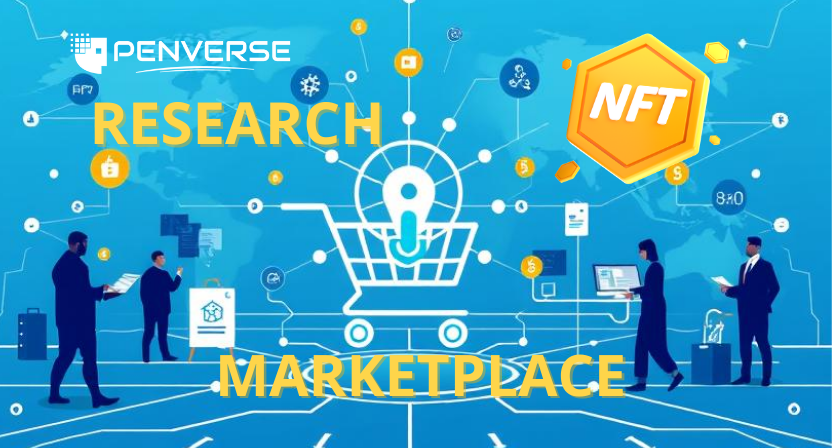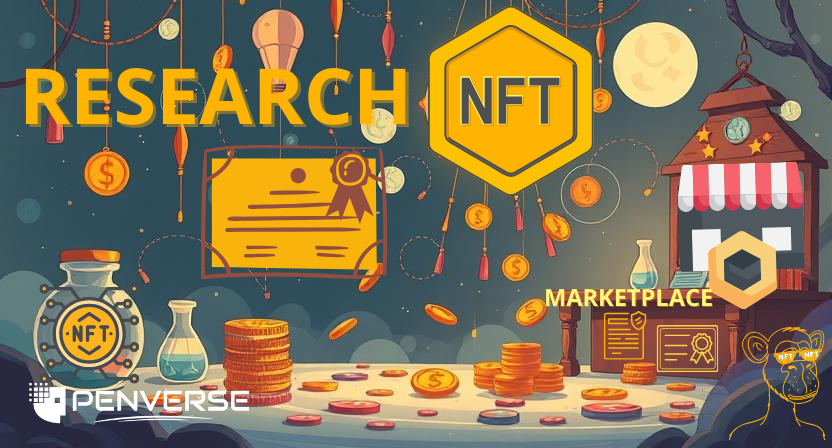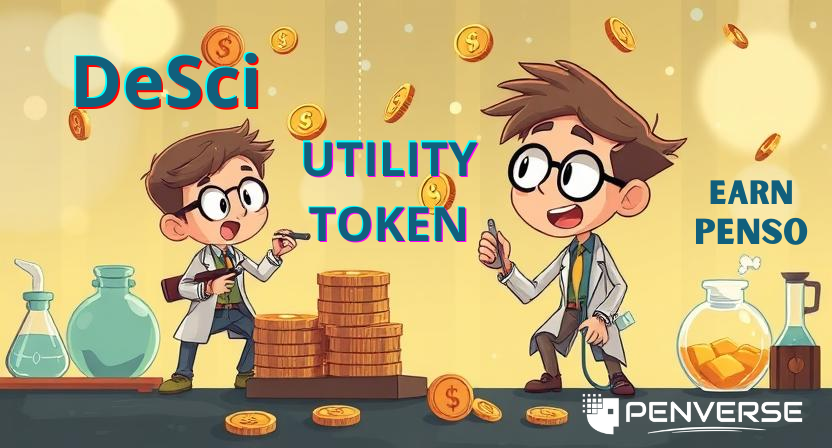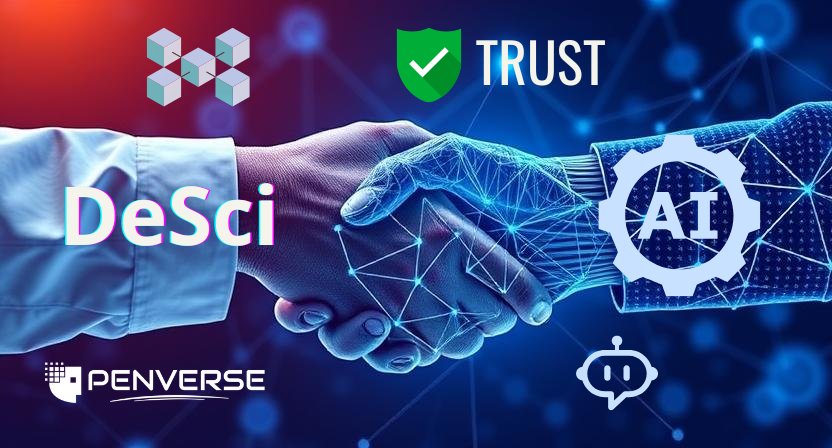Open Science is Here! No More Gatekeepers

Scientific knowledge has long been controlled by institutions, elite journals, and funding agencies that dictate who conducts research, secures funding, and gains access to critical discoveries. The traditional model has turned science into an exclusive club where only a select few control the gates of knowledge. But times are changing. Open science is breaking down these barriers, democratizing research, and ensuring that knowledge is freely available to everyone. The rise of Decentralized Science (DeSci) and AI-powered platforms like Penverse is making this shift possible.

Who Are the Gatekeepers of Science?
Scientific research has long been controlled by a few key players:
- Academic Institutions – Universities control funding distribution, research priorities, and who gets access to advanced laboratories.
- Scientific Journals – Publishers charge exorbitant fees to access research, making knowledge inaccessible to those without institutional privileges.
- Funding Agencies – Government and private grants often favor large institutions, leaving independent researchers struggling for funding.
- Peer Review Boards – While peer review is necessary, traditional processes are slow, biased, and often influenced by internal politics.
- Corporate Influence – Large companies fund research with profit motives, potentially suppressing results that challenge their interests.
This outdated structure slows innovation, limits diversity in research, and prevents breakthroughs that could benefit humanity. But the revolution has begun.
The Rise of Open Science
Open Science is necessary to address some of the most pressing challenges in modern research. One of the biggest issues is the replication crisis, where many studies, particularly in psychology and medicine, fail to be reproduced, raising doubts about their credibility. By promoting open access to data and methodologies, Open Science ensures that findings can be verified and validated by independent researchers, increasing reliability. Another major challenge is the limited accessibility of publicly funded research. Many groundbreaking studies, funded by taxpayers, remain locked behind expensive journal paywalls, restricting access to students, researchers, and the public. Open Science aims to break these paywalls and make knowledge freely available, ensuring that scientific advancements benefit society as a whole.
Furthermore, traditional models restrict data sharing, leading to inefficiencies, duplication of work, and wasted resources. Open Science encourages transparency by allowing researchers to build upon existing studies without barriers. This, in turn, enhances interdisciplinary collaboration, where scientists from different fields can connect and work together to drive innovation. Open Science also strengthens public engagement by making scientific developments understandable and accessible to non-experts, helping bridge the gap between researchers and the general population.
A 2023 report on research accessibility revealed that 67% of studies remain hidden behind paywalls, while 82% of funding is controlled by elite institutions. These figures highlight the urgent need for Open Science initiatives like Penverse, which integrate AI, blockchain, and decentralized funding to create an inclusive research ecosystem. With Open Science, scientific discovery is no longer dictated by a select few but is instead driven by a global, interconnected community.
| Issue | Percentage of Researchers Affected |
|---|---|
| Research hidden behind paywalls | 67% |
| Funding controlled by elite institutions | 82% |
| Slow peer review process | 58% |
| Lack of cross-border collaboration | 45% |
| Corporate-funded research bias | 39% |
Open science is a movement that aims to make scientific research transparent, accessible, and collaborative. It embraces open-access publishing, decentralized funding, and AI-driven research automation, enabling scientists worldwide to share discoveries freely and accelerate innovation.
What Open Science Brings to the World
- Free Access to Research – No more paywalls; anyone can access cutting-edge discoveries.
- Global Collaboration – Researchers from different countries can work together without institutional restrictions.
- Faster Scientific Breakthroughs – Open data and AI-powered analysis speed up discoveries.
- Fair and Transparent Funding – Crowdsourced and decentralized funding eliminates institutional bias.
- Ownership for Researchers – Scientists retain intellectual property rights and monetize their findings.
Open science is not just a trend; it’s the future of research. And Penverse is at the forefront of this transformation.
How Penverse is Enabling Open Science
Decentralized Science (DeSci) is the foundation of Open Science, leveraging blockchain, AI, and decentralized governance to eliminate barriers imposed by traditional institutions. DeSci ensures research is community-driven, funding is distributed transparently, and knowledge is permanently accessible. By integrating smart contracts, tokenized incentives, and decentralized storage, DeSci empowers independent researchers, fosters interdisciplinary collaboration, and accelerates innovation. Unlike conventional systems where journals and universities control access, DeSci operates on an open, transparent, and inclusive framework where researchers worldwide can contribute and benefit without restrictions.
Penverse is an AI-powered Decentralized Science (DeSci) platform that removes traditional barriers to research. It automates research workflows, democratizes funding, and ensures transparency in scientific validation. Here’s how it is reshaping open science:
1. AI-Driven Research Automation
- AI assists with literature reviews, data analysis, and hypothesis generation, reducing the time scientists spend on repetitive tasks.
- AI-powered knowledge graphs connect research across disciplines, accelerating cross-field discoveries.
2. Decentralized & Transparent Funding
- No more reliance on centralized grants – researchers receive funding through DAO-driven community support.
- Crowdfunding & Tokenized Grants – Scientists can raise funds from the global community using blockchain-based smart contracts.
3. Open-Access Knowledge Sharing
- Blockchain ensures immutable and censorship-resistant data storage, making research findings permanently available.
- AI-powered tools help index and organize research for easy accessibility.
4. AI-Powered Peer Review & Validation
- AI-assisted peer review processes detect biases and fraud, making validation faster and fairer.
- Smart contract-based verification ensures that published research is authentic and reproducible.
5. Monetization & Research Ownership
- Researchers can mint their work as NFTs, ensuring ownership and monetization opportunities.
- The PENSO token economy rewards scientists for publishing, reviewing, and contributing to research.
Penverse removes gatekeepers and puts the power back in the hands of researchers, enabling a fair, transparent, and innovation-driven ecosystem.
Visualizing the Shift to Open Science
To understand the impact of open science, let’s look at the difference between traditional research and the Penverse model:

The move towards open, AI-powered decentralized science is unstoppable.
The Future of Science is Open – And It’s Happening Now
Penverse is leading the charge in breaking down the barriers of traditional research. By integrating AI-driven research automation, decentralized funding, and blockchain-backed peer review, it ensures that science belongs to everyone, not just a privileged few.
| Barrier | How Penverse Solves It |
|---|---|
| Paywalls | Research is free and accessible to everyone. |
| Funding Bias | Crowdsourced grants ensure fair resource allocation. |
| Slow Peer Review | AI accelerates research validation and verification. |
| Corporate Control | Science serves humanity, not private interests. |
With Penverse, the future of science is transparent, inclusive, and limitless.




